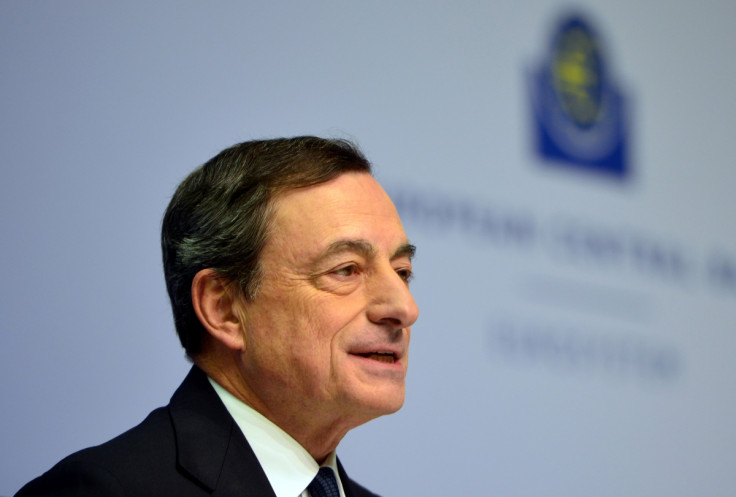No surprises from ECB as key interest rates unchanged in April

The European Central Bank said on Thursday (21 April) that it has left key interest rates unchanged, after opting to surprisingly cut both interest rates at its meeting in March.
In the press conference that followed the announcement, ECB President Mario Draghi made it very clear that "all policy tools remain on the table" and that the bank could further cut the interest rates in a bid to ensure inflation rate returns to the ECB's intended target.
Draghi added the ECB's experience with negative interest rates has been broadly positive and replied to his German critics, claiming those who put in doubt the central bank's independence were likely to extend a period of subdued growth. As a result, the ECB President warned, that could generate the need for even more stimulus measures in the future.
The ECB opted to keep the deposit rate at -0.40% and the headline rate at 0.00%, a decision that is largely in line with forecasts, given the overwhelming majority of economists expected Europe's central bank to hold fire.
Last month the ECB cut its main interest rate by five basis points (bps) to 0.00% and increased quantitative easing (QE) by €20bn to €80bn per month, while the deposit facility rate was cut by 10bps to -0.40% and the marginal lending facility rate to 0.25% from 0.30%.
The bank, which last month revealed it would expand its monthly purchases under the asset purchase programme to €80bn, said it was in the process of implementing its new quantitative easing programme designed boost a stagnant economic recovery and to address ongoing low inflation.
Economists warned that while further action will be needed to push inflation towards the "below, but close to, 2%" target, the ECB is probably nearing its limits.
"We see the ECB extending its quantitative easing programme by another six months in time," said Jennifer McKeown, senior European economist at Capital Economics.
"But with little or no support from fiscal policy, this will not be enough to generate strong growth and the inflation target will remain out of reach."
Draghi also noted the risk from slow growth in emerging markets and low oil prices but placed even greater focus on the need for "other policy" areas to contribute to the recovery, focusing on public investment and lower taxes, financed by a reduction in government expenditure.
"Draghi made several references to 'financial conditions' and how the latest policy measures have contributed to their improvement," said Claus Vistesen, chief Eurozone economist at Pantheon Macroeconomics.
"This suggests that the governing council is now more confident that inflation will rise gradually, but also that it wants to guard against a deterioration in financial conditions which could hurt or even reverse the fragile cyclical recovery."
© Copyright IBTimes 2025. All rights reserved.






















